You’ve heard the old adage, “don’t put all of your eggs in one basket.” This saying is applicable to many parts of our daily lives, however, it should be turned into a retirement planning mantra, especially for individuals who have placed all of their hard-earned retirement savings into a corporate-sponsored retirement account, such as a 401(k), a 403(b), or TSP account.
This is especially true as we navigate through volatile securities markets and high inflation. If you have either maxed out your annual 401(k) contributions and/or you are looking to add more diversification to your retirement savings strategy, this article will outline some investment diversification strategies that you can rely on.
Key Points of this Article:
- How much can you contribute yearly to your 401(k)?
- Understand what you are currently invested in your 401(k)
- How can you diversify outside of a qualified retirement plan account 401(k)?
- Consider opening an IRA or Roth IRA to contribute additional funds on a monthly basis especially if you don’t have much flexibility in the funds you can invest in your 401(k)
- Consider other investment options outside of retirement vehicles such as brokerage accounts, micro-investing apps, 529 education savings accounts, HSA accounts
A Libertyville, IL financial advisor can ensure you don’t have too many retirement accounts.
How Much Can I Contribute Yearly to My 401(k)?
Each year the IRS determines how much individuals can contribute to their 401(k) accounts or other qualified retirement accounts, such as IRAs or Roth IRAs. The limit in 2022 is $20,500 with the caveat that individuals over the age of 50 can contribute an additional $6500, which is considered a “catch-up” contribution.
Understanding Your Current 401(k) Investment Strategy
If you are not 100% comfortable with your investment knowledge/skills, one sure-fire way to ensure you are properly invested in your 401(k) plan is to have a financial planner or financial advisor review your current holdings in your plan.
We highly recommend that you have a good understanding of the different investment options that reside within your 401(k). This is increasingly important given the volatility of the markets in recent times. If you are not allocated properly, you run the risk of experiencing a significant decline in your account’s balance if you are highly exposed in one particular asset class or investment.
If you don’t have a financial planner or advisor yet, you can hire one on an hourly basis to assist in reviewing your current 401(k) investments to get a better sense of the types of funds that are available for you to use as well as review your current allocations. From there, the financial planner may ask you specific questions like when you plan on retiring, your tolerance for risk, etc. This will give them a better sense of not only your current situation but also how your account is allocated to help you achieve your financial goals.
This type of meeting could be worth its weight in gold to you, especially given today’s market volatility.
How Can You Diversify Outside of a 401(k)

If you have additional funds outside of your monthly contributions to your 401(k) that you want to invest in, there are several options available.
Roth IRA
If you’re not happy with the investment choices in your 401(k) or if you’ve maxed out your 401(k) contributions for the year, consider opening a Roth IRA.
What makes a Roth IRA different from a 401(k):
- Any contributions you make are with after-tax dollars
- The holdings grow tax-free
- You can withdraw any contributions before retirement without tax consequences or tax penalties but not earnings
- Roth IRAs offer much more flexibility than a traditional 401(k) account
- You can contribute up to $6,000 (for 2022) and $7000 if you are over 50
Open a Health Savings Account (HSA)
HSA accounts can be another good source for retirement saving assets because they too are tax-advantaged. If you have a high deductible health plan, you may want to consider an HSP account.
HSA benefits include:
- You can use the funds for unforeseen medical expenses
- You can use the account as a long-term retirement savings account
- Any money you put into an HSA is tax-deductible
- Any appreciation or earnings are tax-free
- You can rollover the account each year
- Any withdrawals from your HSA account for qualified medical expenses are not taxed
- An HSA typically offers different investment options that you can choose from
- For 2022, the annual individual contribution is $3700, and $7000 for a family
Starting a 529 Plan for Your Family
If you have a growing family of your own or are grandparents who would like to help your grandkids with their future, a 529 account is a terrific tax-advantaged savings account.
529 plans include these features:
- They encourage savings for future educational costs like tuition, fees, room/board
- You can invest in ETFs and mutual funds, like your 401(k) account
- This also applies to paying for private K-12 schooling in addition to college
- You can withdraw up to $10,000 a year per student for educational costs
- Any earnings that are withdrawn that are not used for qualified educational expenses will be taxed, as well as an additional 10% penalty that is applied by the IRS
Invest in Real Estate
Real estate can be a great way to diversify your portfolio, especially during volatile market conditions and inflationary periods like we are experiencing today.
There are several ways you can invest in real estate:
- Purchase homes that you can rent out
- Purchase homes that need renovation and then flip them
- Invest in real estate investment trusts (REITs)
- Invest in private real estate opportunities
When you invest in syndicated or private commercial real estate transactions, you must be an accredited investor, meaning you have to meet certain income and/or net worth requirements.
Most real estate investments are not liquid – in other words, you can’t buy and sell your holding in a day like you can a stock or bond. Most commercial real estate investments have a duration of several years before there is a liquidity event.
Along with many tax benefits, you can also realize passive income when you invest in real estate. This is often attractive for higher net worth individuals so you don’t have to manage the property yourself. You have a team that handles the day-to-day operations of managing and maintaining the property for you.



